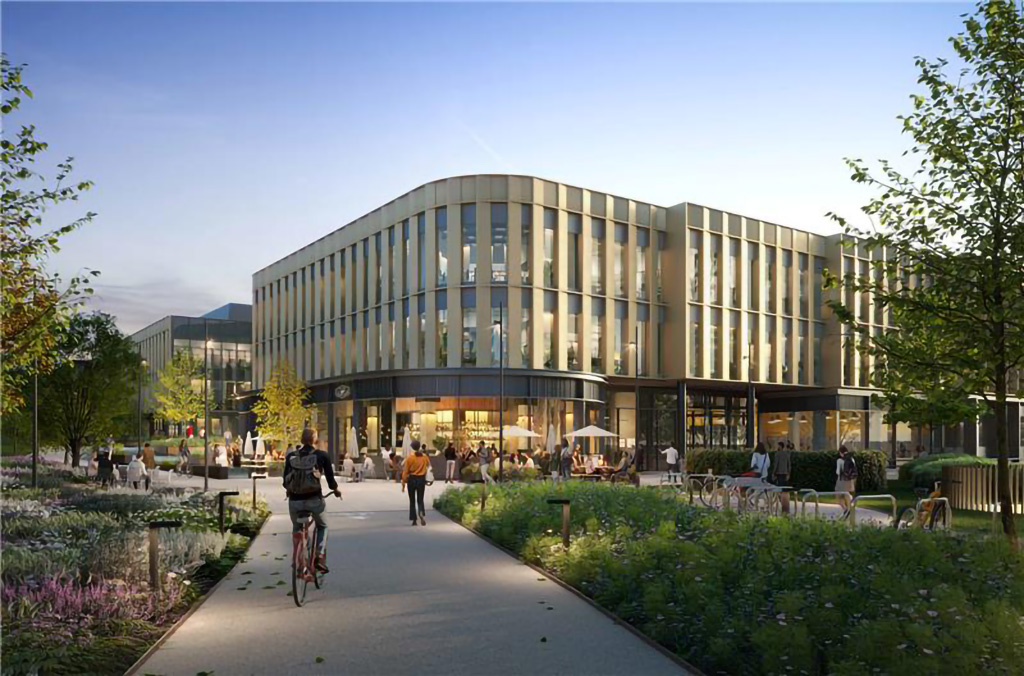So you'd like to form a spin-out company?

We asked Dr Ross Rounsevell, Business Development Manager at the Wellcome Sanger Institute to share his insights into the process of forming spin-out companies. Ross works with academic researchers to facilitate the translation of their scientific discoveries for wider research and healthcare benefit in the form of licenses, technologies, and products.
Essentially the process of spinning out a company can be broken down into four steps. Simple enough:
- You have an idea
- You write a business plan
- You put some resource behind it
- You start operations
And whilst this is definitely the path any fledgling business is likely to follow, there are a few things a founder needs to get right in order to succeed.
But first on the difference between spin-outs and start-ups…
All spin-outs are start-ups but not all start-ups are spin-outs
What distinguishes a start-up from a spin-out is that the latter requires the separation of a capability from the organisation that created it. This process of spinning-out can generally take longer to put together simply because the values of the organisation or ‘parent of the idea’ have to be accommodated and negotiated with both in terms of asset transfer (usually by way of IP license) and the ongoing rights their minority shareholding will grant them.
Founder/ inventor/ entrepreneur
Ross argues that the founder is often the ‘secret sauce’ that helps to make their idea into a successful spin-out but being an inventor doesn’t automatically make you an entrepreneur; or indeed, vice versa. The truth is, that to found a company a person needs to not only have ideas (be an innovator) but to be able to act on them (be an entrepreneur). They must also understand their own value: their limitations as well as their abilities. Ultimately, they need to be honest about their motivations and needs and be clear on what they want out of the endeavour. This is the essence of a successful founder- a tall order indeed…
The founder’s personal journey is crucial to securing interest from investors and understanding how to navigate relationships between all the different stakeholders who are usually involved. In the case of business development practice at the Sanger Institute, there are usually three key stakeholders; the Founder/Researcher, the Institute and the Investor(s). Each stakeholder, naturally driven by their own agendas and obligations, impacts negotiations at every step of the way. The founder must navigate these tricky waters conscious of stakeholder motivations, but Ross argues this is where a healthy dose of honesty and self-knowledge is required to achieve success on an emotional as well as financial levels if you’re spinning out.
A spin-out founder who got it right
Dr Trevor Lawley was in his early-thirties when he arrived at the Sanger Institute to start his postdoc. 10 years on, he is CSO of Microbiotica (a company that was spun-out of the Wellcome Sanger Institute in 2016) and also runs a research group at the Institute that sequences the genome of thousands of bacterial strains from the gut of humans to understand host-bacteria interactions. Trevor encourages his team to perform translational work and has actively shared his experiences of co-founding Microbiotica with peers and students to support the innovation and entrepreneurship culture here at the Wellcome Genome Campus.
At least 4 years’ worth of lab work with Clostridium difficile (klos-TRID-e-um dif-uh-SEEL), led up to the first demonstration of a resolution for a gastrointestinal infection. Trevor’s science showed that you could use a relatively small number of bacteria to address an infection in the gut by selecting bacteria itself as a treatment. Trevor’s collaborator and mentor at the time, Professor Gordon Dougan also runs a research group at the Sanger Institute focusing on the genetic analysis of host/pathogen interactions during infection and he too saw the potential value of this science impacting healthcare. Whilst the process towards the company‘s formation was inevitably complex and took several years, there were a number of things that happened which helped to make the company a success.
The first ingredient of Microbiotica’s success was Trevor himself who was honest about where he could contribute to the company formation process with his existing skills and where he could not. Another important ingredient was that Trevor engaged in discussions with commercial parties to understand the challenges and opportunities in trying to take his academic insights to market. This ultimately resulted in a pharma company showing an interest in the translational potential of Trevor’s science, which immediately added perceived value to a then only a prospective spin-out. Finally, Dr Mike Romanos, encouraged by the pharma interest in the idea, was brought on board through his connection with Professor Dougan who had a wealth of experience as a seasoned drug development expert and had previously worked for GSK, and as an entrepreneur in the biotech sector. Mike Romanos is CEO and co-founder of Microbiotica.
Getting interest from investors
Ross’s informal conversations with at least five investors in his network have revealed that whilst every interaction with a founder is different, there are, it seems, certain things that can be done to secure the success of your fledgling spin-out. Below is a distillation of this advice.
When spinning out…
- Understand your stakeholders
- Be open about your technology’s advantages and limitations
- Understand the value that you and your idea can bring to market
- Make it a team effort
- Engage in discussions/make yourself accessible to other stakeholders
- Start exploring opportunities early
- Always think about application
If you have an idea for a business that relates to your research, or are looking for a partnership or a license we want to hear from you. Our Enterprise & Innovation Team can help you build relationships with the Wellcome Sanger Institute that could lead to new business opportunities. Email us to set up a meeting or a phonecall with either Ross Rounsevell or Emmanuelle Astoul- our Business Development Managers if you have an idea that you would like to take to market.


